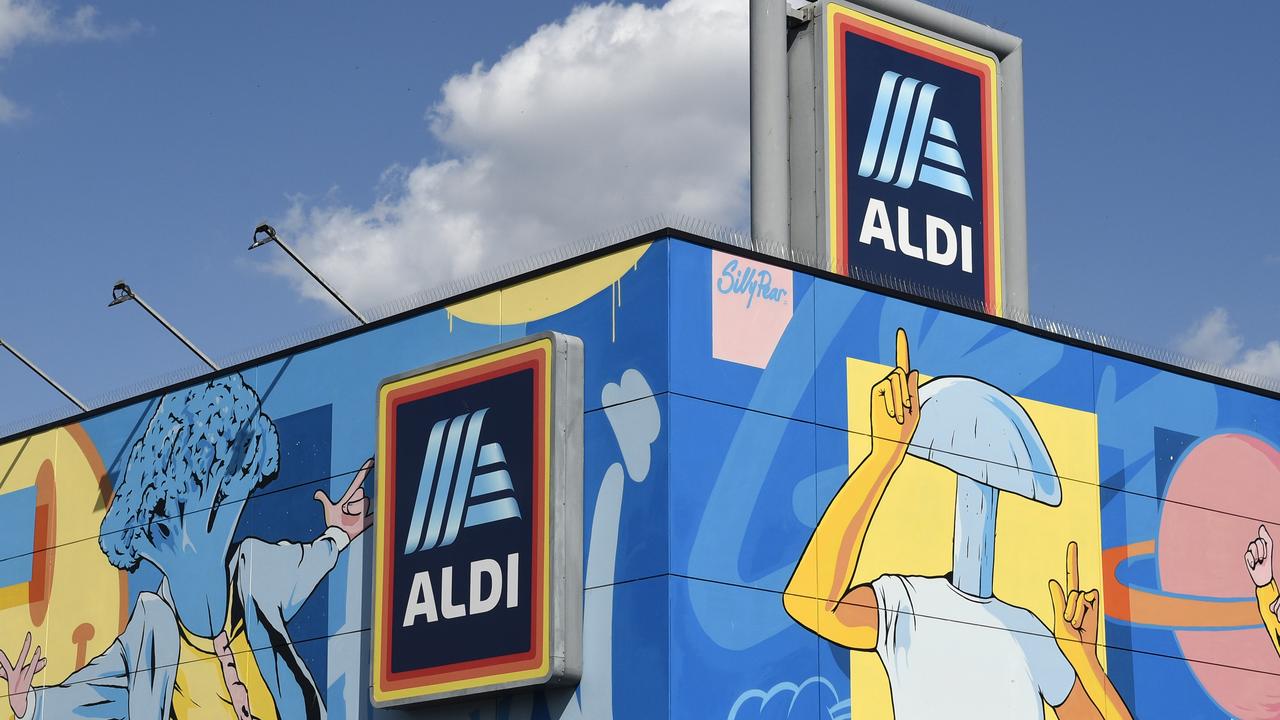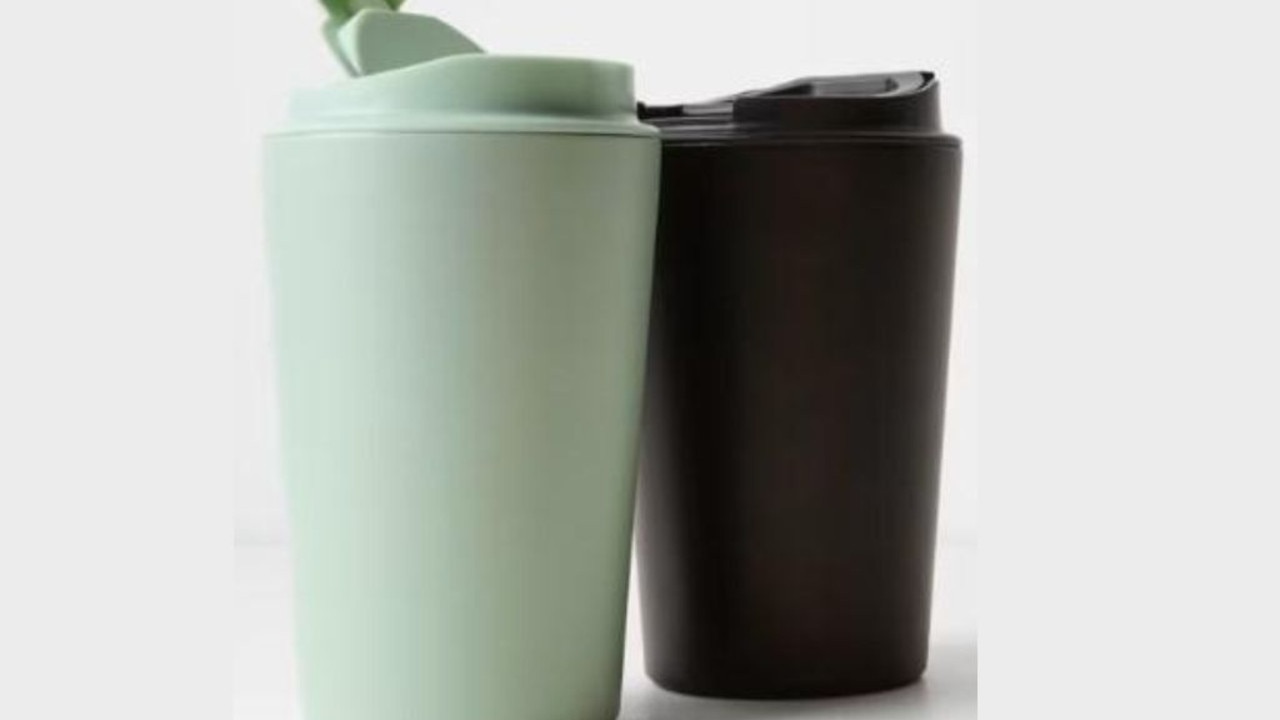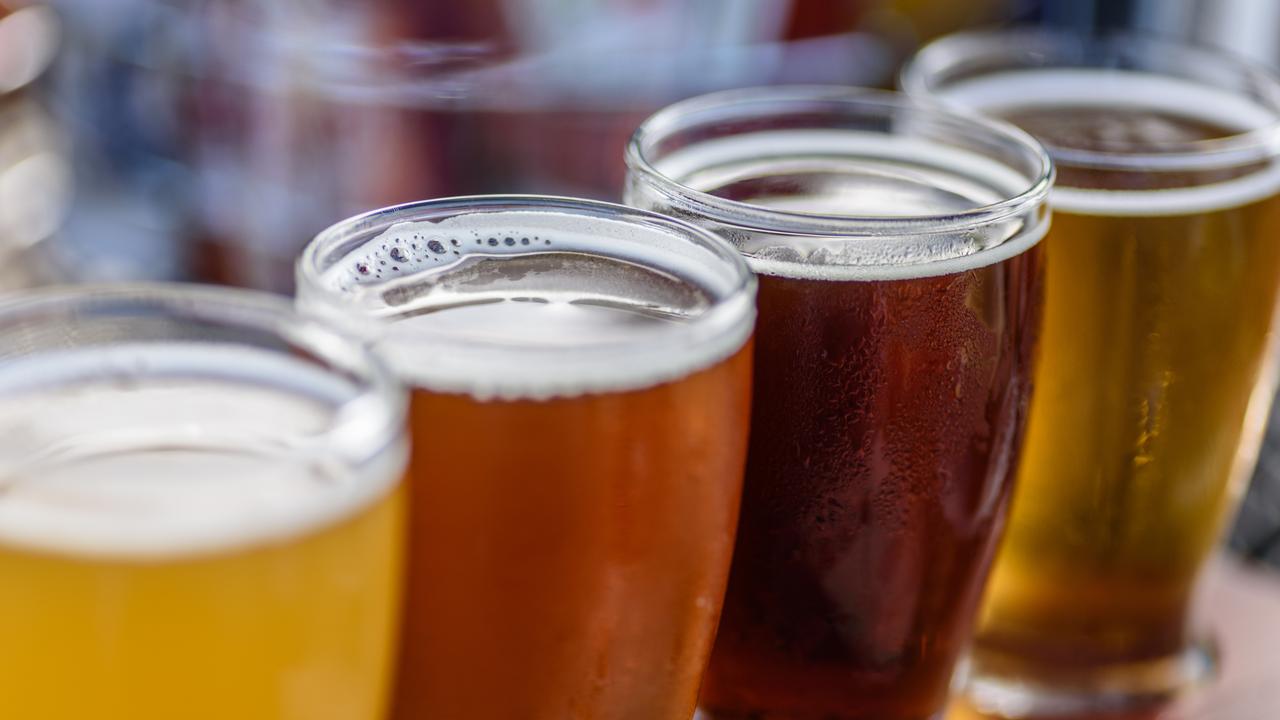Baby formula in demand by thieves as well as desperate parents
THESE pictures have Aussie retailers worried, and asking whether it’s time for a radical new measure to deal with “white gold”.
THE global baby formula crisis has hit a sickening new low in the US, with police rounding up theft rings stealing the product to sell on the increasingly lucrative “white gold” black market.
Officers in Utah last month confiscated 422 cans of stolen formula worth up to $10,000 and arrested a trio of alleged thieves accused of systematically swiping the mixture from shelves to resell to unsuspecting parents.
US officials say baby formula theft is vexing stores and police nationwide, and Australian retail authorities aren’t surprised at all by the phenomenon.
Australian Retailers Association executive director Russell Zimmerman said while the industry body had not been informed of the sought-after product being stolen from shelves here in big volumes, it was definitely an attractive product for shoplifters.
Being expensive, scarce, and essential for some customers, baby formula is ripe for the picking.
“It’s very expensive and when you’ve got a can that lasts about a week at around $20 and you’ve got a baby that needs it then it would be a sought-after product for shoplifters, particularly in some areas,” Mr Zimmerman told news.com.au.
“What you generally find in theft is it increases when times are tough. Obviously it’s very attractive for the fact that it’s expensive.”
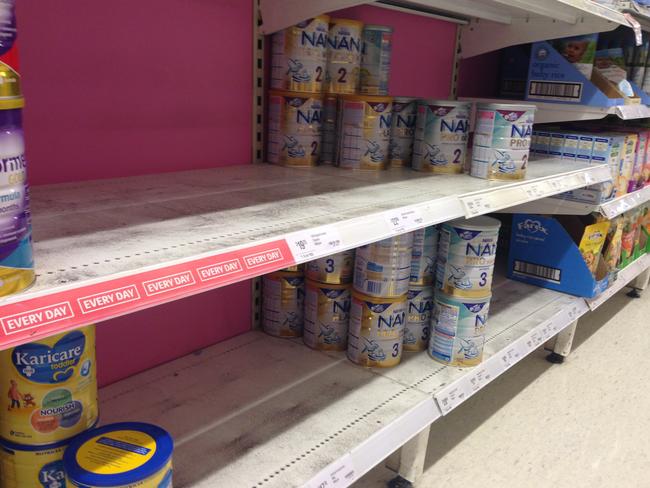
While customers clamouring to get their hands on the hard-to-come-by formula would be furious to know it was also in the sights of thieves, Mr Zimmerman said measures restricting the sale of the product due to the shortage may also work to deter them.
“The product is being sold in big volumes in Australia, we know that. We’ve had complaints about people walking out with 10 cans or more at a time. If it’s in short supply then it is harder to walk out the door with it than when it’s in plentiful supply,” he said.
“Being a larger product, it is harder to walk out the door with it as well, and most supermarkets would have a sign up that if your bag is larger than the size of a standard piece of paper then (they) can request a bag check. With such a high-demand product, they would have more incentive to carry out those checks.”
Woolworths refused to reveal to news.com.au whether baby formula theft was an issue for the major supermarket chains, while competitor Coles also refused to comment.
The two retailers, along with major chemists, are the biggest stockists of infant formula in Australia.
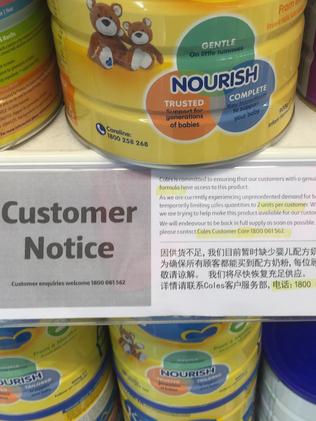
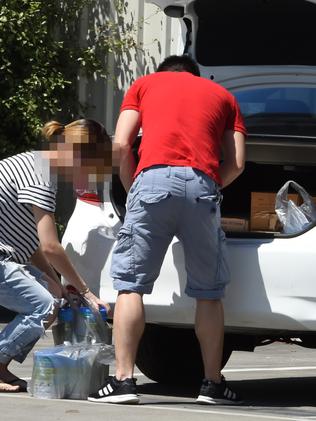
Both grocery giants have enforced strict buying limits for infant formula, and Mr Zimmermann said they and other retailers had the capacity enforce measures to restrict their theft as well.
“What you find they do with anything that has a high theft value on it they will put an electronic security tag on it. The other thing retailers will do is put those products in a highly visible place so its harder to conceal,” he said.
While the onselling of baby formula in Australia is common, particularly to overseas buyers online, there is limited evidence as to whether the products have been legitimately purchased.
Some Chinese buyers demand a shopper docket with their grey market infant formula as a “certificate of authenticity” for the product.
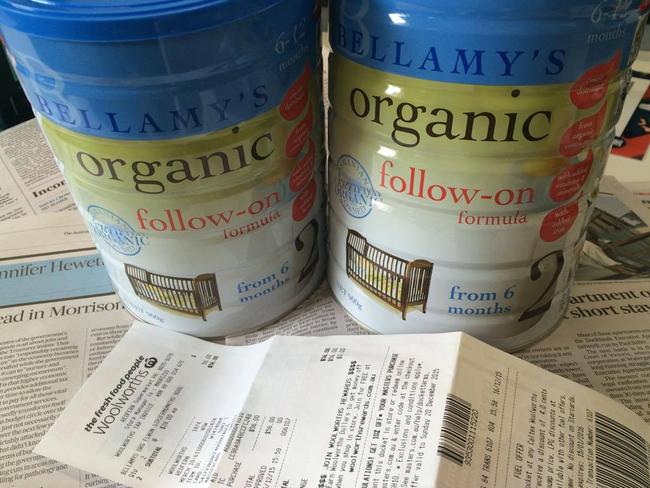
In the US the formula theft epidemic has become so severe, retailers have had to resort to keeping their baby formula behind the counter.
Others stamp their store names and locations on containers to alert consumers or police if the stolen product turns up for sale somewhere else.
Associated Press reports, in the US thieves typically sell stolen formula at flea markets or list it on websites like Craigslist and eBay.
Along with busting the theft ring in Utah in December, in California thefts of large amounts of formula are reported at least once a month.
In April, Pleasanton police arrested two people suspected of stealing dozens of containers of the product.
In 2009, Florida authorities arrested 21 people accused in an elaborate theft ring that officials say pilfered more than $2 million in formula annually.
Investigators working on that sting — called “Operation Hot Milk” — said thieves were paid between $100 and $300 a day and used multiple lookouts while filling bags with formula. They hit 15 or more stores a day and later repackaged the formula and sold it in other states, authorities said.
American health authorities have advised parents that stolen formula can be a safety concern.
— With AP


